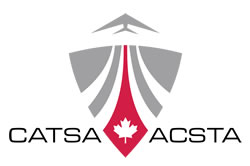May 12, 2016
The Honourable Michael Coteau
Minister of Tourism, Culture and Sport
900 Bay Street. Ninth Floor, Hearst Block
Toronto, Ontario, M7A 2E1
Delivered Electronically
Dear Minister Coteau,
The following is in response to the public draft of Ontario’s Culture Strategy. On behalf of our over three thousand professional musician members in the City of Toronto, Peel Region, Durham Region, York Region, Simcoe County, Muskoka District and Parry Sound District I would like to thank you and your team for your efforts to create this plan and your efforts to bring the cultural community and Province together under a unified vision for culture.
1. The draft vision for culture in Ontario and the principles to guide government support for culture reflect much of what is important to us.
a. In the vision the notion of value resonates with us as it is what drives our association. We work towards a society and workplace where all professional musicians are valued for their many contributions.
b. The notion of inclusiveness mirrors our larger mandate to treat each other with respect and dignity no matter what ethnicity, creed, sex, age, disability, citizenship, sexual orientation, marital status, family status, or national origin;
2. We especially appreciate and would ask for increased emphasis on economicdevelopment for individuals and communities, as the development of businesses, especially foreign-owned businesses often takes precedence in economic development conversations in the music sector.
a. Specifically, while we appreciate the increased support for the music sector through the Ontario Music Fund, we would like the Province to monitor and incentivize the fair payment of individual musicians as part of the delivery of the fund. We have had the experience that our members work for businesses supported by the fund has not increased since the advent of the fund. Our concern with government support and the work of government agencies in general, is advocating for a fair balance of investment in Ontario- based professional musicians, when compared to foreign-based services or non-artistic expenses and to partner with the Province to increase its vigilance in collecting and verifying this investment.
b. As a local of a trade union, our exclusion from being able to apply for support from OMF also hinders our ability to contribute strategically to Ontario’s culture sector
3. We are confident that Goal 2 – fuel the creative economy, will be successful, and we wish to point out the following areas that we see as especially strong, or in need of further attention for our members:
a. Despite our request to sit on the Ontario Live Music Working Group as a representative approved by the Canadian Federation of Musicians we have not been included and to our knowledge the group lacks any representation from associations dedicated solely to individual artists, or any arts sector unions. We would still be happy to represent on this group and help find more representation of individual artists and technicians working in the live music sector.
b. Our members are directly involved in the creation of film scores in Ontario for Canadian and world distribution and as such we would like to contribute to the discussions regarding film scoring and be included on the film and television industry advisory panel
c. It is especially exciting to hear that the Ministry of Tourism, Culture and Sport will be working with the Ministry of Employment and Infrastructure as our single largest barrier to increased positive work environments for our members is our lack of inclusion as contract workers under the Employment Standards Act and the Labour Relations Act. Working with the Ministry of Employment and Infrastructure we are asking you to expand our inclusion either by changing the aforementioned acts as part of the Changing Workplaces Review or by updating the Status of Ontario’s Artists Act to include the content that helps govern relationships between cultural sector producers and distributors and the creative people that fuel their work.
d. Of course the strategy that most reinforces our work is that which states “engage federal, provincial and territorial culture partners on strategies to improve the socio-economic status of artists…” this is what we dedicate ourselves to every day and would be proud to partner in the pursuit of this goal. One immediate way to impact this goal, and perhaps another goal itself is for the Government of Ontario to commit to minimum fees for artists in all of its activities and the activities it invests in through the Ministry of
Tourism Culture & Sport and the agencies under the Ministry.
4. While we believe major amendments and additions to the Status of Ontario’s Artists Act are required, the idea of an Arts Policy Framework that at minimum outlines best practices for artist payment and other matters such as extended healthcare and retirement planning for artists is a major step in the right direction.
5. Lastly, understanding that the Province of Ontario has economic challenges the same as many jurisdictions in the world, and notwithstanding the stated goals to attract investment from other ministries and the private sector, we believe that increased public investment in the cultural sector through the Ministry of Tourism, Culture and Sport and its agencies, especially Ontario Arts Council and Ontario Media Development Corporation, should be a separate and explicit goal in the strategy.
Through the draft we are already confident that the Government of Ontario recognizes the importance of a healthy cultural sector, and the importance of at least maintaining, if not improving the socio-economic status of artists. Considering the next generation of artists includes amazing creators and interpreters
from Ontario’s many cultural and Aboriginal communities, uses technology to create and disseminate in such a different way, and are vital to our future, it is so important that we do not lose, and instead gain ground for them and make life more livable for all artists in our great Province.
Please do not hesitate to call upon us for more feedback or as partners in the implementation of the strategy.
Sincerely,
Michael Adam Murray
Executive Director
Toronto Musicians’ Association
Local 149 of the American Federation of Musicians of United States and Canada
c. Ontario Legislative Assembly
Paul Miller, MPP, Hamilton East-Stoney Creek, Ontario NDP Critic, Tourism, Culture and Sport
Steve Clark, MPP, Leeds-Grenville, Ontario PC Critic, Tourism, Culture and Sport
Ontario Ministry of Tourism, Culture & Sport and Agencies
Maureen Adamson, Deputy Minister
Kevin Finnerty, Assistant Deputy Minister
Samantha Fox, Policy Advisor, Ministry of Tourism Culture & Sport
Peter Caldwell, CEO and Director, Ontario Arts Council
Karen Thorne-Stone, President & CEO, Ontario Media Development Corporation
American Federation of Musicians of the United States and Canada
Alan Willaert, Vice President from Canada, Canadian Federation of Musicians
Liana White, Executive Director, Canadian Federation of Musicians
Ray Dillard, President, Local 149, Toronto
Charlie Gray, Secretary, Local 149, Toronto
Robin Moir, Secretary / Treasurer, Local 180, Ottawa Francine Schutzman, President, Local 180, Ottawa David Knarr, Secretary, Local 226, Kitchener
Paul Mitchell, President, Local 226, Kitchener Steve Case, President, Local 276, Sault Ste. Marie Paul Leclair, Secretary, Local 276, Sault Ste. Marie Ted Peacock, Secretary, Local 279, London
Colin Stewart, President, Local 279, London Larry Feudo, President, Local 293, Hamilton Brent Malseed, Secretary, Local 293, Hamilton
Gordon Cleland , Secretary, Local 298, Niagara Falls Ryszard (Rick) Rybak, President, Local 298, Niagara Falls Allen Torrance, President / Secretary, Local 384, Brockville Grant Heywood, President, Local 418, Stratford
Stephanie Martin, Secretary, Local 418, Stratford Marg Conway, Secretary, Local 467, Brantford Kenneth Johnson, President, Local 467, Brantford Sue Moore, Secretary, Local 518, Kingston
Gene Richard, President , Local 518, Kingston Christopher Borshuk, President, Local 566, Windsor Lynne Wilson-Bradac, Secretary, Local 566, Windsor Garry Agostino, President, Local 591, Thunder Bay Norman Slongo, Secretary, Local 591, Thunder Bay
Eve Goldberg, Vice President from Canada, Local 1000



 Norm Amadio fittingly just turned 88 this April, and will soon celebrate his 62nd wedding anniversary with his wife, Lorraine. Norm retired after the 2014 Toronto Downtown Jazz Festival, ending a career that spanned over 70 years.
Norm Amadio fittingly just turned 88 this April, and will soon celebrate his 62nd wedding anniversary with his wife, Lorraine. Norm retired after the 2014 Toronto Downtown Jazz Festival, ending a career that spanned over 70 years.
 Shawn Mendes has made huge inroads in his short time in the public spotlight. The 17-year-old GTAborn and -raised singer/songwriter, who also plays guitar and piano, launched his career through the power of social media. In 2012, he began posting a series of videos of himself performing cover versions of popular songs across various video sharing websites including Vine and YouTube, earning him a dedicated following of viewers.
Shawn Mendes has made huge inroads in his short time in the public spotlight. The 17-year-old GTAborn and -raised singer/songwriter, who also plays guitar and piano, launched his career through the power of social media. In 2012, he began posting a series of videos of himself performing cover versions of popular songs across various video sharing websites including Vine and YouTube, earning him a dedicated following of viewers.


